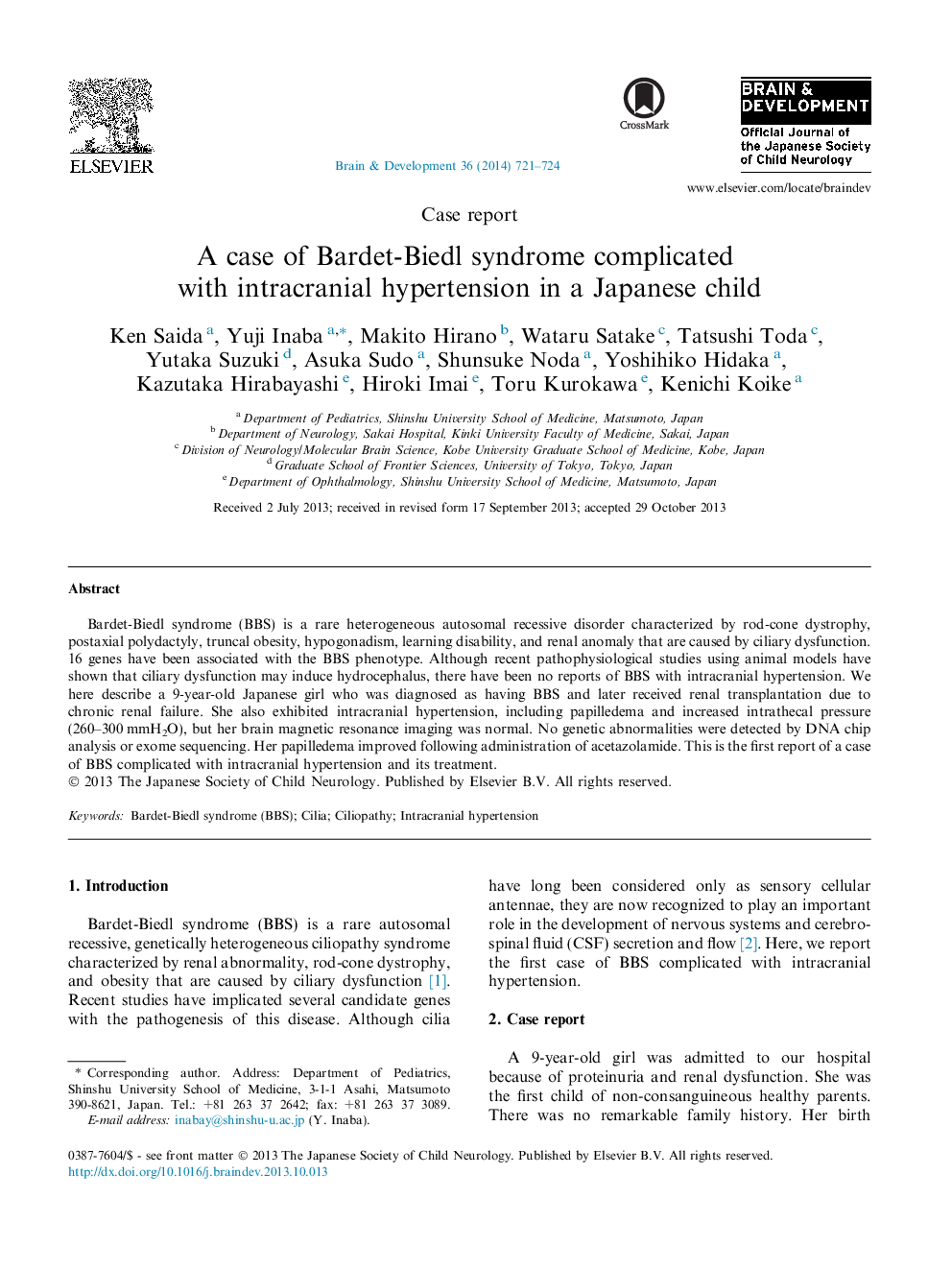| Article ID | Journal | Published Year | Pages | File Type |
|---|---|---|---|---|
| 3036919 | Brain and Development | 2014 | 4 Pages |
Bardet-Biedl syndrome (BBS) is a rare heterogeneous autosomal recessive disorder characterized by rod-cone dystrophy, postaxial polydactyly, truncal obesity, hypogonadism, learning disability, and renal anomaly that are caused by ciliary dysfunction. 16 genes have been associated with the BBS phenotype. Although recent pathophysiological studies using animal models have shown that ciliary dysfunction may induce hydrocephalus, there have been no reports of BBS with intracranial hypertension. We here describe a 9-year-old Japanese girl who was diagnosed as having BBS and later received renal transplantation due to chronic renal failure. She also exhibited intracranial hypertension, including papilledema and increased intrathecal pressure (260–300 mmH2O), but her brain magnetic resonance imaging was normal. No genetic abnormalities were detected by DNA chip analysis or exome sequencing. Her papilledema improved following administration of acetazolamide. This is the first report of a case of BBS complicated with intracranial hypertension and its treatment.
